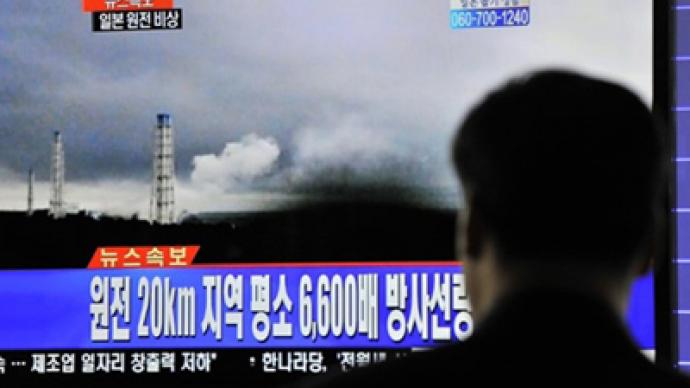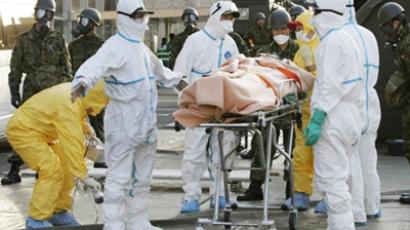Fukushima no Chernobyl but will reignite nuclear fear - physicist

The Fukushima nuclear disaster will most probably awake controversy about nuclear energy justification, shared Senior Research Fellow in the Energy and Environmental Programme, Walt Patterson.
The earthquake and the explosions that followed it at the nuclear reactors of the Fukushima plant are likely to have damaged the sensors (temperature, pressure, water level etc.) and distorted the contact between the control room and the reactors. Now there is no reliable information about what is really going on inside the reactors, Patterson explains.The author of the book on energy, Keeping the Lights On, fears that the real problem is that once the fuel rods melted and uranium fuel got into the water, the chain reaction started again.Japan is now in an unprecedented situation believes the physicist.“It would be bad enough if it were normal times, but this is after an earthquake and an enormous tsunami, when the communication channels and the normal organization even of a society as organized as Japan has taken a terrible hit. So, the fact that they now are faced with a problem like a nuclear problem – they already have more on their hands than anybody could possibly imagine… it is brutally difficult for both the government and the people of Japan,” commented Patterson.He revealed that the water-cooled reactors used at Fukushima-1 power plant were originally designed in the US to be used in submarines and are very specific as they are compact but very productive. This only added sophistication to the already very much complicated technology and the track record of this type of reactor, criticized a lot in the US, is not good. “I found last night an article that I wrote nearly 40 years ago, describing an intense controversy in the US about the performance precisely of the so-called “emergency cooling systems on water–cooled reactors,” Patterson remembers. "Their performance was criticized by independent experts in the US but then the establishment of the US Atomic Energy Commission waved the concerns aside. This was at the time when Fukushima-1 was built.”But Patterson hopes the Fukushima emergency will be “a long way shorter” than that of Chernobyl because in the case of Fukushima there is no mechanism that could distribute radioactivity like there was in Chernobyl, where a hot air spew carried radioactivity right into the stratosphere and then carried it all over the planet by stratospheric winds. Still, the fires at the station are lifting some radioactive particles into the air which could be carried some distance by wind.According to Patterson, construction of nuclear power plants is not a good idea because “they are very expensive and tend to be unreliable” and the now emerging safety issue will only complicate things further.“Until quite recently nobody has built any nuclear power plants, not in the West, there have been no nuclear plants ordered in the US since 1978 and every applied order since 1974 has been canceled up until the last couple of years,” he said.“The reason that people have not been objecting to nuclear power for the past 20 years is that nobody has been building them [nuclear power stations]. So now you’re going to get a situation which might turn into a re-run of the kind of controversies of the fourth-generation of nuclear plants in the late 1960s and 1970s, when the public was deeply unhappy about a lot of these plants – and we may well find that happens again,” Patterson concluded.














